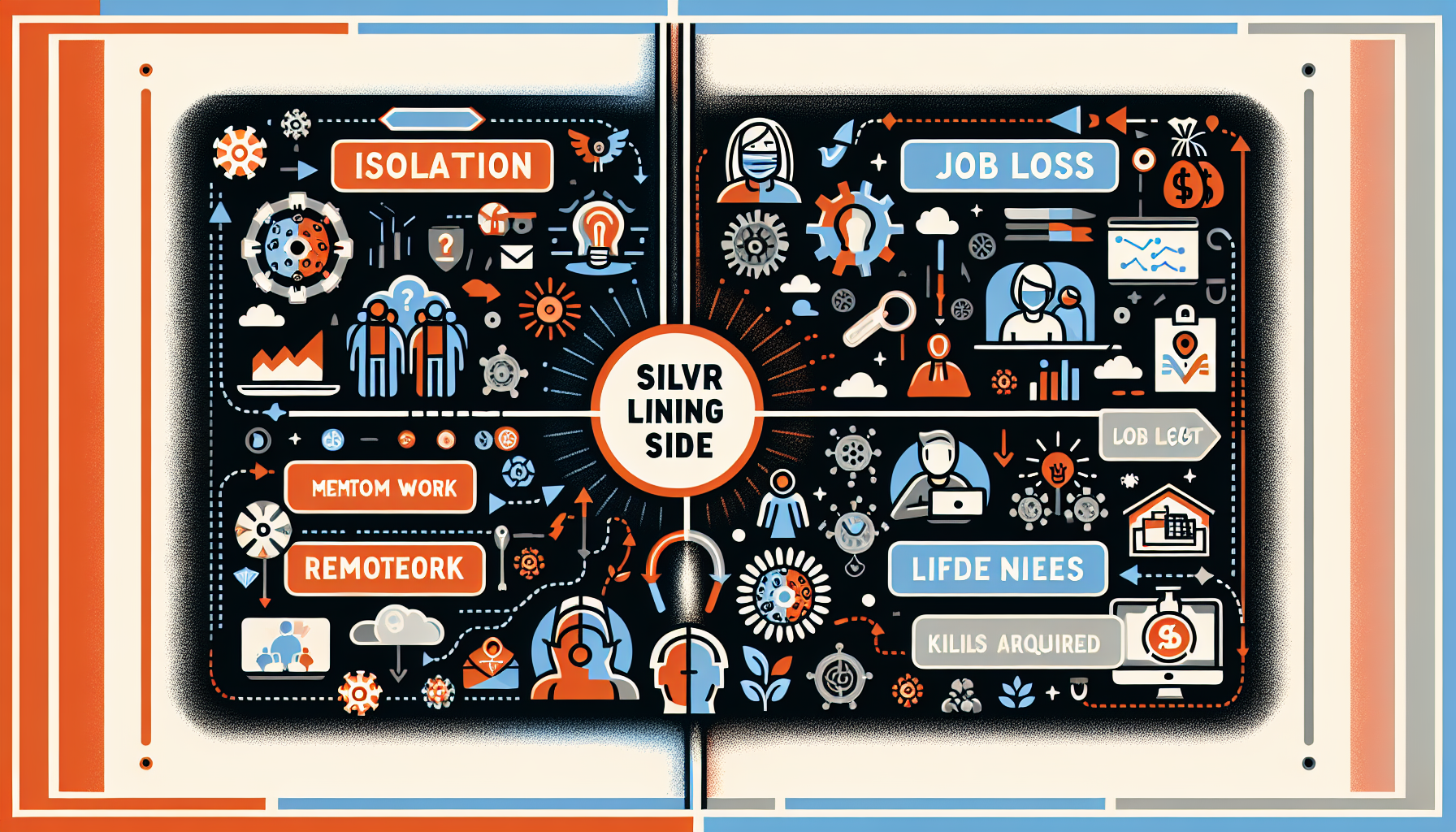The Rise of Remote Work: Transforming Regional Career Landscapes

The shift to remote work has created a unique opportunity for rural and non-metropolitan regions that have historically struggled to retain talent. Many skilled professionals, disillusioned by the high cost of living and congestion associated with urban centers, are now seeking lifestyle changes that allow them to live and work in more serene environments. For instance, the tech industry has seen a significant number of its workforce relocating to picturesque small towns while maintaining their careers. A study by Upwork found that 22% of the American workforce is projected to work remotely by 2025, indicating a growing trend that could lead to a resurgence in rural populations. Communities enhancing their digital infrastructure and promoting remote work-friendly policies stand to benefit significantly from this shift. This trend is evident in places like the Finger Lakes region of New York, where local governments have partnered with tech companies to attract remote workers. By offering incentives for relocating families, these regions are not only retaining talent but also rejuvenating local economies with an influx of new residents.
Economic Revitalization
As remote work becomes more commonplace, regions that previously faced economic challenges may find new life. Cities and towns can market themselves as attractive destinations for remote workers, creating initiatives that encourage telecommuting professionals to settle down in their communities. This influx can lead to increased demand for local services, housing, and recreational activities, ultimately stimulating local economies. Take, for example, the town of Chattanooga, Tennessee, which has aggressively marketed itself as a 'gig city' by investing in high-speed internet access and hosting events aimed at remote workers. This forward-thinking approach has resulted in a notable increase in population and job creation, demonstrating the potential benefits of embracing the remote work trend. Chattanooga’s success story highlights how proactive measures can lead to sustainable economic growth, paving the way for other regions to adopt similar strategies.
Diverse Job Opportunities
Remote work is also expanding the types of available jobs in various regions. Companies are no longer confined to hiring local talent; they can now source qualified candidates from across the globe. This democratization of job opportunities allows businesses to tap into a wider talent pool, often leading to more diverse and innovative workplaces. For instance, companies in traditionally agriculture-dominated regions can now recruit software developers, marketers, and other professionals who work remotely. This diversification of the job market not only helps to stabilize local economies but also fosters innovation as different perspectives and skill sets converge. Organizations in small towns are increasingly leveraging platforms like LinkedIn and remote job boards to find talent, breaking the geographical barriers that once limited their hiring practices. This trend not only supports local economies but also enriches businesses with a diversity of thought and experience.
Challenges and Considerations
While the rise of remote work presents numerous advantages, it also comes with challenges. The potential for increased social isolation, the need for effective communication tools, and the importance of maintaining a healthy work-life balance are critical considerations for both employees and employers. Additionally, regions must be proactive in providing resources and support to ensure that remote workers feel connected to their communities. Moreover, the digital divide remains a significant barrier in many areas, where access to high-speed internet and technology is limited. Addressing these disparities is essential to fully realize the potential of remote work. For instance, rural communities must prioritize investments in broadband infrastructure to ensure all residents can participate in the remote economy.
The rise of remote work is undeniably transforming regional career landscapes, offering new opportunities for talent retention and economic revitalization while fostering diverse work environments. As more individuals and organizations embrace this shift, it is crucial for communities to adapt by enhancing their infrastructure, promoting inclusivity, and addressing the challenges that accompany this new way of working. By doing so, regions can not only survive but thrive in a future where work is no longer confined to traditional office spaces, paving the way for a more equitable distribution of opportunities across the globe. The move towards remote work is not just a trend; it is a revolutionary change that can redefine how we think about careers and communities, fostering a more connected and resilient workforce. As we continue to navigate this evolving landscape, it is essential for all stakeholders to collaborate in harnessing the full potential of remote work, ensuring that no region is left behind in the quest for sustainable growth and opportunity.
Remote Software Development Manager
Automattic, GitLab, Shopify
Core Responsibilities
Oversee software development teams in a remote setting, ensuring projects meet deadlines and quality standards.
Collaborate with cross-functional teams to align development efforts with business objectives and user needs.
Required Skills
Proven experience in agile methodologies and project management tools such as Jira or Trello.
Strong leadership abilities with a focus on remote team dynamics and effective communication.
Digital Marketing Specialist (Remote)
HubSpot, Buffer, Mailchimp
Core Responsibilities
Develop and execute online marketing campaigns to drive brand awareness and customer engagement.
Analyze data from various digital channels to refine marketing strategies and optimize performance.
Required Skills
Proficiency in SEO, SEM, and social media marketing, with a strong understanding of tools like Google Analytics and AdWords.
Excellent written and verbal communication skills to convey brand messages effectively in a remote environment.
Remote Customer Success Manager
Zendesk, Intercom, Freshdesk
Core Responsibilities
Act as the primary point of contact for customers, ensuring they derive maximum value from the company’s products or services.
Identify upsell opportunities and facilitate product training sessions for clients in a virtual setting.
Required Skills
Strong interpersonal skills with a knack for relationship-building and problem-solving.
Familiarity with CRM software (e.g., Salesforce, HubSpot) and customer engagement metrics.
Remote UX/UI Designer
InVision, Toptal, Dribbble
Core Responsibilities
Design user-friendly interfaces for web and mobile applications, focusing on enhancing user experience.
Conduct user research and usability testing to gather insights for design improvements.
Required Skills
Proficiency in design tools such as Sketch, Figma, or Adobe XD and a solid understanding of web development technologies (HTML/CSS).
Strong portfolio demonstrating a range of design projects and decision-making processes.
Virtual Project Coordinator
Basecamp, Trello, Wrike
Core Responsibilities
Assist project managers in planning, executing, and monitoring project deliverables while coordinating remote team activities.
Maintain project documentation and facilitate communication among team members across different time zones.
Required Skills
Strong organizational skills and attention to detail, with proficiency in tools like Microsoft Office and project management software.
Ability to adapt to various communication platforms, such as Slack, Zoom, and Asana, for effective collaboration.


